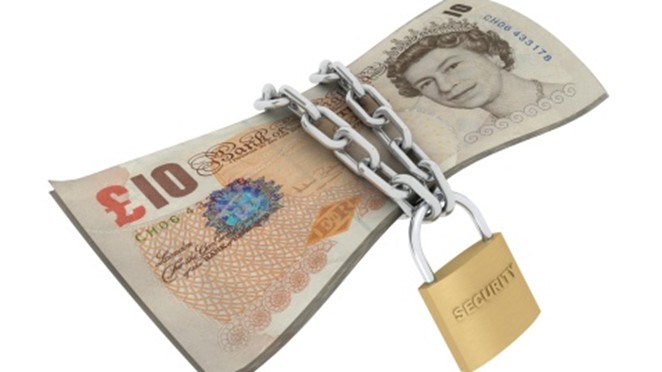For many, the thought of becoming a landlord is incredibly appealing. There is the potential to make ongoing rental income from a major asset that, in itself, has the potential to grow financially. However, entering into property investment without first researching your legal and other requirements. While it is a legal requirement that you have regular safety checks on electrical and gas appliances, there are some requirements that might not be legally required but should still be considered vital. Tenancy agreements, for example, can be oral, but this offers little to no protection in the event of dispute.
Appliance Checks And Energy Certification
All electrical and gas appliances must be safety checked to ensure that tenants and others are not put in any undue risk. These checks need to be carried out by certified professionals, should be conducted every year, and will provide you and the tenant with gas and electricity safety certifications. As a landlord, you need to provide your tenants with a copy of these certificates.
If you fail to meet these safety requirements, then you could face a prison sentence, as well as fines of up to £5,000 and £25,000 for electric and gas appliances respectively. Ensure that you use registered engineers to complete the check. Recent changes mean that CORGI registered gas engineers are not suitable; you must current use Capita registered engineers instead.
It is not yet a legal requirement to offer a specific level of energy efficiency in rental properties, but you must have an up-to-date Energy Performance Certificate and this must be made available to your tenants. The certificate should be provided along with gas and electricity safety certificates at the start of a tenancy agreement.
Furnishing And Furniture Safety Checks
Appliances aren’t the only elements of a property that need to be checked for safety, either. If you provide any furnishings or furniture with your home, such as chairs and sofas in the living room or beds in the bedroom, then these also need to be checked for safety levels.
If you have any furniture that does not comply with Fire and Safety Regulations then you could face a fine of up to £5,000 and even a prison sentence of up to six months. What’s more, if any damage is caused, you could be liable to pay for damages and losses to your tenants and even to other property owners and tenants in a building.
Even part-upholstered furniture is covered by this regulation, and all compliant furnishings should include a rectangular label that states that the furnishings have met safety standards.
Tenant Checks
It is now a legal requirement to ensure that tenants have the legal right to reside in the UK. This means conducting proper and thorough citizen and ID checks. Although not a legal obligation, credit checks and background checks should also be considered an important part of tenant checks. If you take on a tenant that has a poor rental payment history, then this means that they are more likely to miss payments or make late payments than a tenant with a perfect rental payment history.
A tenant referencing company will not only ensure that potential tenants have the legal right to stay in your property in the UK, but they will also check factors such as whether the rental of a property is affordable and whether a person has had any break in income over the past six months.
Having a professional service conduct your tenancy checks is a prerequisite for most rental guarantee insurance schemes too, and these can save you considerable money if a tenant does default.
Tenancy Deposits

Since 2007, it has been a legal requirement that all deposits paid by tenants to landlords are placed into a Tenancy Deposit Scheme. This is to prevent instances where tenants have been left out of pocket because they have only received a disproportionate amount of their deposit back following a rental. Legally, any tenancy deposit must now be paid into a TDS and the tenant provided with details of the scheme and how the deposit will be protected.
When your tenant decides to leave, it will be necessary to show the Tenancy Deposit Scheme that you are entitled to keep a portion of the deposit, if this is the case. This is meant as a means of protecting the tenant, but it does encourage tenant and landlord to come to an agreement on what is an acceptable amount.
Tenancy Agreements
In England and Wales it is not usually a legal requirement to have a written tenancy agreement in place; a verbal agreement is enough to meet legal requirements. In Scotland, a written agreement is a legal requirement; all landlords and tenants are advised to have any agreement written down and signed by both parties.
If there is a dispute, then a signed agreement not only helps ensure that you meet your legal requirements, and so does your tenant, but it can help avoid irreparable damage to the landlord/tenant relationship.
Insurance
Strictly speaking, landlord insurance is not a legal requirement. You could make do with a standard buildings insurance policy, but there are many reasons to consider upgrading, not least the fact that most mortgage lenders will require that you have landlords’ insurance before allowing you to lease a property out or before accepting a buy-to-let mortgage application.
As well as having insurance for the property, and even for any building contents that you have, you should at least consider additional insurance protection. Rental protection insurance, liability insurance, and legal expenses cover will help to safeguard and protect your financial future. Otherwise, you could be left with a considerable outlay if the worst were to happen.
Meeting Your Legal Requirements
Not only do you need to consider the legal requirements that you need to meet when you first rent out a property, but you should also set up reminders or arrange with professionals and professional services to conduct regular and routine checks. Bear in mind that you will need the permission of your tenant to enter the property even for things like gas and electric checks, you should allow reasonable time before the deadline, in order to complete these checks.
When you first take a tenant on, you should provide :
· Copies of the gas and electrical safety check certificates
· A copy of the energy efficiency rating
· Details of the Tenancy Deposit Scheme that you have used
· Also give serious consideration to using a written agreement, which offers greater protection over a verbal agreement
· Take out any insurance that you want
· Ensure that furnishings are checked and that they include the safety check label
Using A Letting Agent
Becoming a landlord can be lucrative and it can offer you a sizeable second income without having to manage multiple properties and dedicate yourself full time to managing tenants and properties. Using a professional and experienced letting agent like Home and Abroad Rentals Limited means that you don’t have to worry about annual safety checks or conducting tenant checks. Your letting agent will conduct all of the necessary checks while also ensuring that you maximise your rental income and the rental yield on your property.




